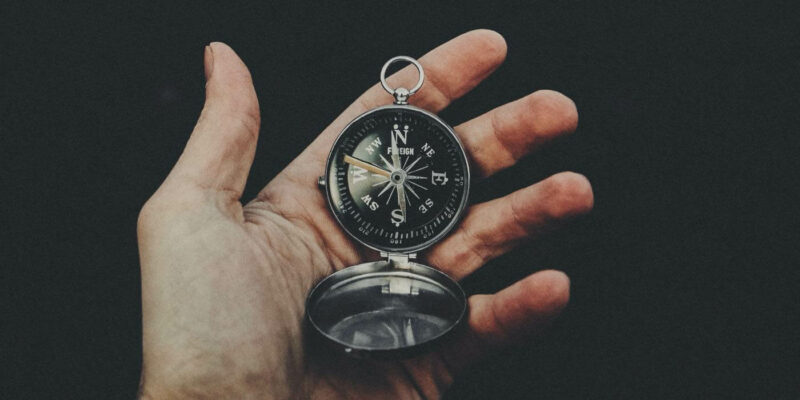Do you often stay up way too late even though you know you’re going to pay for it tomorrow?
Welcome to revenge bedtime procrastination!
Today I’m going to share 4 of the most common psychological causes of this bad habit so that you can address the real issue and get back to better sleep, better energy, and more focus throughout your days.
1. Low Agency
The basic idea of revenge bedtime procrastination is that because you feel like you don’t have enough control of your time during the day—and as a result, you don’t get to spend enough time doing what you really want—you take “revenge” by staying up past your bedtime make time for it late at night.
Like most bad habits, this feels good in the moment:
- Binge watching the rest of that new show on Netflix stokes and satisfies your curiosity
- Eating a big bowl of ice cream “just because” feels oddly empowering in the moment
- Working through five levels in your favorite video game gives you a sense of progress and mastery
Of course, like all bad habits, we end up paying for it later:
- Only getting 5 hours of sleep leads you to be groggy, unmotivated, and irritable the next day
- That big bowl of ice cream weighs heavily on your conscience
- And the excitement of making progress in your video game only makes you feel worse about how stuck and unhappy you are in your job
The key thing to see here is that even though the superficial benefits of staying up late are incredibly short-lived—and probably not worth the next-day consequences—they do represent legitimate needs.
- Binge watching Netflix might signal a need for more curiosity and intellectual challenge in your life
- Binge eating junk food might represent a desire for more freedom to make choices autonomously
- And “leveling up” in video games could reflect a very real desire for a sense of growth and mastery in your life.
When you step back and take a more psychological view of your “bad choices” late at night, they very often represent a need for greater agency in your life.
If you feel like a supporting character in your own life—constantly showing up to other people’s meetings, taking care of other people’s needs, and achieving other people’s goals—it’s natural to want to feel like the hero, even if that means taking revenge on your daytime self by indulging nighttime self.
We all crave agency in our lives. But if you don’t have as much as you’d like, revenge bedtime procrastination might be a sign that you need more.
2. Sleep Anxiety
This one’s straightforward:
If you associate your bed with worry, anxiety, and frustration because you don’t sleep well, is it any surprise that you avoid going to bed?
Many people struggle with insomnia, even if they’ve never been diagnosed:
- Sometimes it’s initial insomnia, which means struggling to fall asleep initially—usually because your mind is racing and you overthink and have trouble “shutting off” your brain.
- Sometimes it’s middle insomnia where you wake up in the middle of the night and struggle to fall back asleep—often because you start worrying about not being able to get back to sleep and what the consequences will be.
- And occasionally it’s terminal insomnia, which means you chronically wake up an hour or more before your alarm in the morning, typically with a lot of early morning anxiety.
But regardless of what type of insomnia you’ve got, the core problem is always the same:
By chronically worrying and being anxious in bed, you’ve taught your brain to fear it.
This means that even if you weren’t anxious before bed, you almost certainly will be once you get in bed. Because like poor old Pavlov’s dogs, your mind has created a conditioned response through repeated associations—it’s just that instead of a bell triggering hunger and saliva, it’s your bed triggering anxiety.
The only way out of this sleep anxiety-insomnia cycle is to break the association between your bed and worry.
Now, you can do all the usual sleep hygiene tips and tricks, but they’re unlikely to make much of a difference if you’ve got a more serious case of insomnia and sleep anxiety.
For that you need something a little stronger…
Drugs
No, just kidding. In my experience, by far the most effective way to work through insomnia and sleep anxiety is with a little known but extremely powerful and research-supported technique called Sleep Compression.
The basic idea is that by temporarily spending less time in bed, you spend proportionally more time in bed actually asleep and a lot less time in bed worrying and anxious. Eventually, you retrain your mind to associate your bed with rest and relaxation, which eliminates the sleep anxiety (as well as the need for revenge bedtime procrastination), and makes it much easier to fall and stay asleep.
You can learn more about sleep compression in this short guide I wrote. I also created a Sleep Compression Quickstart Guide you can download. Finally, if you want more structure and guidance working through insomnia, I have a short course called Undoing Insomnia.
3. Need for Solitude
It took me a while to notice this pattern in my work with clients who struggle with revenge bedtime procrastination. But once I did, it was impossible to unsee…
Most of us need alone time. And often late at night feels like the only time we can get it.
And this isn’t just an introvert vs extrovert thing: There’s something deeply human about the need for solitude. And while there’s a lot of variety in terms of how much or how often different people crave being alone, the vast majority of us do want and need alone time.
Of course, modern life is not especially conduce to quality time for solitude:
- We’re in and out of Zoom meetings all day
- Constantly getting hit with texts, pings, and other social notifications on our phones
- And you might have a job where you literally have to be interacting with other people nearly non-stop
Given this situation, it’s not all that surprising that some of us end up “stealing” a little time in the evenings after everyone else has gone to bed. As one former client of mine put it:
“I love my job, my husband, and my kids. But damn… I just need a break from it all sometimes!
Unfortunately, using revenge bedtime procrastination as an outlet for alone time and solitude doesn’t usually work out that well.
For one thing, like we mentioned earlier, the costs of chronically losing a couple hours of sleep per night are pretty steep and likely outweigh whatever benefits you accrue.
But more than just sleep deprivation, the other problem with using revenge bedtime procrastination as an outlet for solicitude is that most people aren’t actually getting the kind of solitude they really want and need.
This isn’t the time or place to get into a whole thing about the psychology of solitude, but it’s probably enough to point out that just because you’re technically alone doesn’t mean you’re benefiting from solitude…
- Are you really getting the benefits of solitude if you’re surrounded by characters from your favorite sit-com?
- Are you really alone if you’re scrolling instagram, envious of all the beautiful, productive, creative influencers in your feed?
- Are you really alone if you’re plugged into your PlayStation shooting zombies or racing supercars?
Obviously, it’s not for me to definitely answer any of those questions. But if you think your revenge bedtime procrastination might be at least in part driven by a need for solitude, it’s worth reflecting on what high-quality solitude actually looks like and whether or not 11:00-1:00 am is the best time to get it.
4. Chronotype Confusion
Many of the people I work with who struggle with revenge bedtime procrastination are biological owls living as social larks.
But let me explain my terms and metaphors…
- Chronotype is a person’s biological tendency to sleep at a certain time throughout the day. Most of us have fairly moderate chronotypes, so we tend to get sleepy somewhere between 9 and 11 and naturally wake up between 5 and 7. Importantly, chronotype is a biologically hard-wired trait—it’s not something that changes or can be trained. You can override it through brute force, but it’s not something you can fundamentally change.
- An owl or night owl refers to someone with an extreme evening chronotype, which means they tend to have a lot of energy late at night, don’t naturally get sleepy until after midnight, and struggle to wake up before mid-morning.
- A lark is a person with an extreme morning chronotype, which means they have a lot of energy very early in the morning, naturally get sleepy in the early evening, and wake up very early in the morning.
An important but under-discussed part of sleep health is having a good fit between your chronotype and your lifestyle.
For most of us who have fairly moderate chronotypes, this isn’t much of an issue as our biology aligns pretty well with the demands of a typical adult lifestyle.
But if you’re one of the few people with a more extreme chronotype—a night owl or lark—you have to be much more careful of your lifestyle:
- A night owl might thrive in their college years when they have few responsibilities and staying up late and sleeping in late are both socially acceptable and logistically feasible since, for example, they can choose to schedule classes in the afternoon and get their school work done anytime. But that same night owl might struggle once they graduate and get a job where they’re required to be in the office at 6:00 am every morning.
- A lark, on the other hand, might have a hard time in college because maintaining a healthy social life means staying up well past their ideal bedtime. But that 6:00 am start time for their first job is no problem.
Now, remember back to what I said at the beginning of this section about how many of the people I work with who struggle with revenge bedtime procrastination are biological owls living as social larks.
If you’re someone who naturally has a lot of energy in the mid to late evenings—maybe that’s even when you feel the most creative and the most alive—going to be at a “reasonable hour” like 9 or 10 is not only going to bed difficult, it’s also going to feel like a waste!
If the late evening are your best hours, but you’re forced to sacrifice them because your job demands that you get up early, you can see how the pattern of revenge bedtime procrastination would come about.
In this case, you can think of revenge bedtime procrastination as an expression of resentment at having to live a lifestyle that’s at odds with your biology.
Of course, it’s not easy to change big lifestyle factors like your job’s normal working hours or when your three kids decide to wake up each morning. But what’s key to see and accept is that if you have an extreme chronotype—you’re a night owl or lark—your biology isn’t going to change. Which means you owe it to yourself to really try and think hard (and creatively) about how you can modify your lifestyle to better accommodate your chronotype.
Next Steps
If you enjoyed this article, here are a few more you might also like:
- 3 Ways to Stop Sleep Anxiety (Video) →
- 7 Habits of Exceptionally Good Sleepers (Article) →
- Better Sleep for High-Achievers with Dr. Daniel Erichsen (Interview) →
Sleep Course
If you want a more structured approach to getting better sleep, I teach a course called Undoing Insomnia which you might enjoy.




